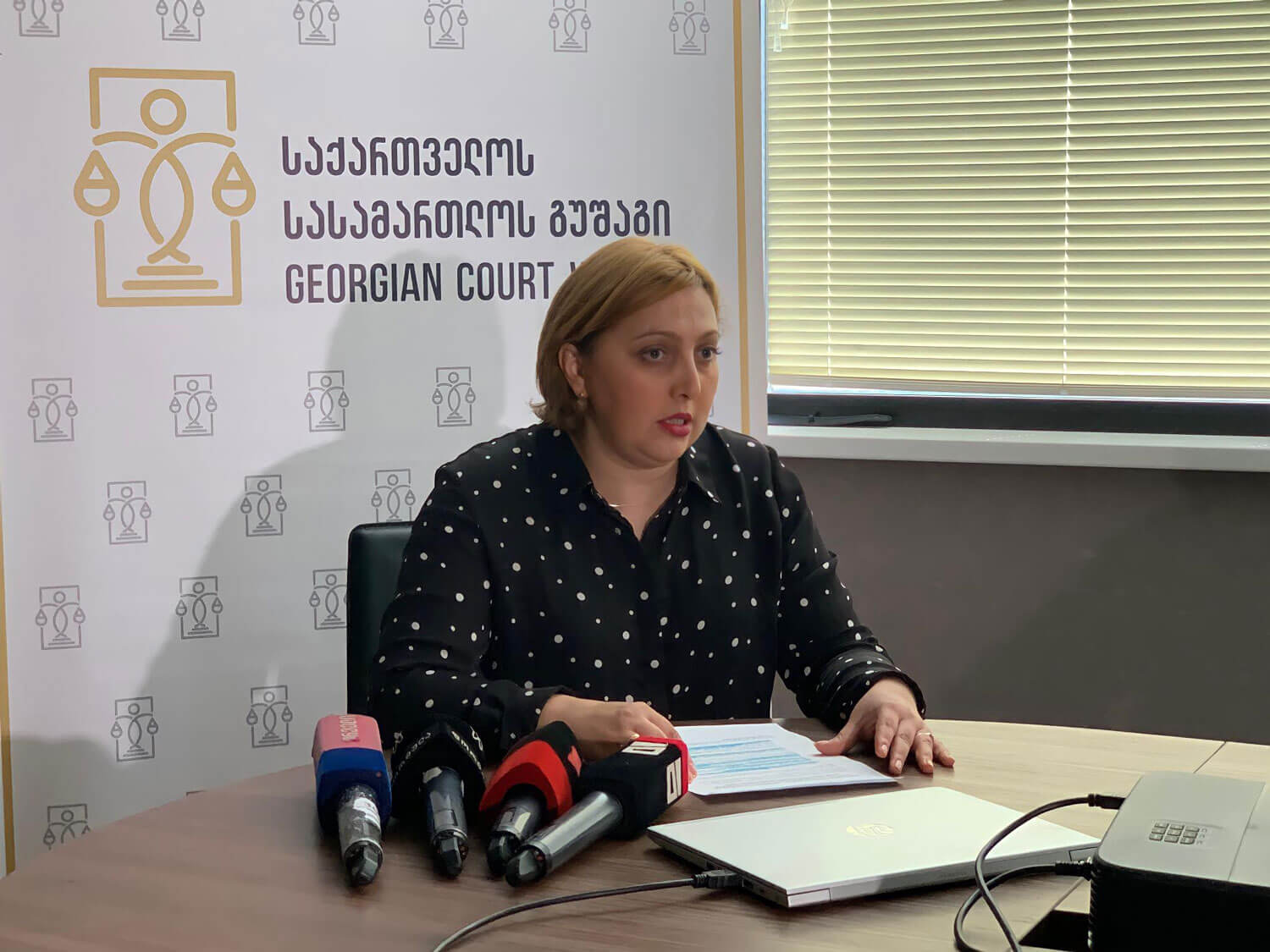Nazi Janezashvili held a briefing on difficulties related to obtaining public information from the judiciary

Personnel and other changes in the judicial system are carried out secretly away from the public eye, through non-transparent processes. Not only do the Supreme Council of Justice and courts not disclose information on several issues proactively, but often they stay silent even after the said information has been requested.
Based on its own experience, "Georgian Court Watch" identified several problems related to the provision of information by the judicial authorities:
- The Supreme Council of Justice reduced the placement of information on the website, which should be proactively published, to the greatest extent.
- The Supreme Council of Justice and the courts, even though they are obliged to provide public information within the established timeframe, in many cases they do not even send a response signifying refusal.
- At the same time, it became practically impossible to communicate with the people responsible for public information in different parts of the judicial system.
- In the Tbilisi Court of Appeals, it was found that the person who should provide public information is Natalia Kalandia, the daughter of Sergo Metofishvili, the chairman of the investigative and pre-trial panel of the Tbilisi City Court. When we sent a request, she did not provide us with the data on such a simple question as what is the number of cases under consideration in the Tbilisi Court of Appeal.
Also, Natalia Kalandia did not provide data to the organization about the number of cases considered by the chairman/judge of the Tbilisi Court of Appeal, Mikheil Chinchaladze, as well as several other judges.
- Even today, the Supreme Council of Justice has not published or called (despite the request) the decisions concerning the appointment of judges who are on a 3-year probationary period. The publication of this decision would shed light on the problem that the procedure required to extend the term was bypassed for several judges, since the High Council of Justice is currently represented with an incomplete composition.
At the same time, it should be noted that only the Supreme Court, the independent inspector,
and the Rustavi City Court answered the questions recently sent by Georgian Court Watch.
Accordingly, on the one hand, it is clear that the deadlines for providing public information defined by the law have been violated, and on the other hand, it is incredibly difficult to contact the people responsible for providing public information. During working hours, such important bodies as the Supreme Council of Justice, the Tbilisi Court of Appeal, the Kutaisi Court of Appeal, and the City Court do not answer calls to the phone numbers indicated on the official websites.
Georgian Court Watch tries to obtain information about the number of cases distributed through the electronic system, the workload of courts and individual judges, the appointment of judges, and other such issues that the judicial authorities should process and publicize even without an appeal. Despite the fact that the said issues fully belong to the category of public information, various branches of the judiciary avoid answering a number of legitimate questions, which shows how closed and opaque the current justice system is.
Freedom of, and access to information is a constitutionally guaranteed right aimed at increasing the accountability and transparency of state bodies. "Public control" of the activities of public institutions is impossible without transparency. At the same time, the publicity and transparency of information helps to build and increase the confidence of citizens. Increasing trust in the court should be the first concern of the judiciary, especially when there are already many problems with the transparency and accountability of the court.































